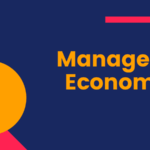How to Avoid Distractions While Studying: Insights from Science
In today’s hyper-connected world, staying focused while studying can be a monumental challenge. From smartphone notifications to social media temptations, distractions are everywhere. However, scientific research offers valuable strategies to help you minimize interruptions and enhance your concentration. Here’s a science-backed guide to avoiding distractions and maximizing your study efficiency.
1. Create a Dedicated Study Environment
Science Says: Research highlights that environment plays a crucial role in concentration. According to the Journal of Environmental Psychology, a clutter-free, quiet, and well-organized space can significantly improve focus and productivity.
Actionable Tip: Designate a specific area for studying that is free from distractions. Ensure it is tidy, comfortable, and equipped with all necessary materials. Limit access to this space for studying only, so your brain associates it with focused work.
2. Use the Pomodoro Technique
Science Says: The Pomodoro Technique, which involves studying for 25 minutes and then taking a 5-minute break, is supported by research on cognitive fatigue and productivity. The technique helps maintain high levels of focus by breaking work into manageable intervals and preventing burnout.
Actionable Tip: Implement the Pomodoro Technique during your study sessions. Use a timer or a specialized app to keep track of intervals and breaks. This method helps maintain motivation and allows for regular mental rest.
3. Limit Digital Distractions
Science Says: Studies show that digital distractions, such as social media and notifications, can significantly impair cognitive performance and increase the time needed to complete tasks. According to the American Psychological Association, constant notifications can cause cognitive overload and disrupt focus.
Actionable Tip: Turn off notifications and use apps or browser extensions that block distracting websites during study sessions. Consider putting your phone in another room to reduce the temptation to check it.
4. Practice Single-Tasking
Science Says: Research from Stanford University indicates that multitasking can actually reduce productivity and increase the likelihood of errors. Focusing on one task at a time is more effective than juggling multiple tasks simultaneously.
Actionable Tip: Concentrate on one subject or topic during each study session. Avoid switching between tasks, as this can lead to cognitive fatigue and decreased performance. Single-tasking allows for deeper engagement and better retention of information.
5. Employ the “Two-Minute Rule”
Science Says: The Two-Minute Rule, derived from David Allen’s productivity principles, suggests that if a task takes less than two minutes, do it immediately. This principle helps clear minor tasks quickly, reducing their potential to cause distractions later.
Actionable Tip: If a small, unrelated task arises while studying, quickly handle it if it takes less than two minutes. This approach prevents minor tasks from piling up and causing disruptions to your study flow.
6. Optimize Your Study Times
Science Says: Circadian rhythm research indicates that individuals have peak times of alertness during the day. Understanding your own biological rhythms can help you choose optimal study times when you are most focused and productive.
Actionable Tip: Identify your personal peak focus times through trial and error. Schedule your most challenging study tasks during these periods to take advantage of your natural cognitive strengths.
7. Practice Mindfulness and Meditation
Science Says: Mindfulness and meditation have been shown to enhance concentration and reduce susceptibility to distractions. According to research published in Psychological Science, mindfulness practices improve attention span and cognitive control.
Actionable Tip: Incorporate mindfulness exercises into your daily routine. Short meditation sessions before studying can help clear your mind and improve your ability to focus on the task at hand.
8. Maintain a Balanced Lifestyle
Science Says: Physical health and mental well-being are closely linked to cognitive performance. Studies reveal that regular exercise, a balanced diet, and adequate sleep are essential for maintaining optimal concentration levels.
Actionable Tip: Prioritize a healthy lifestyle to support your study efforts. Ensure you get regular physical activity, eat nutritious meals, and aim for 7-9 hours of quality sleep each night.
9. Set Specific Goals and Deadlines
Science Says: Goal-setting theory suggests that clear, specific goals enhance motivation and focus. Research shows that setting concrete goals with defined deadlines improves performance and reduces procrastination.
Actionable Tip: Establish clear study goals and deadlines for each session. Break down larger tasks into smaller, manageable objectives to stay organized and maintain a sense of progress.
10. Use Visual and Auditory Cues
Science Says: Visual and auditory cues can help maintain focus by signaling the beginning and end of study periods. The use of cues can help reinforce routine and reduce the likelihood of distractions.
Actionable Tip: Use visual reminders, such as a study schedule or a to-do list, to keep track of your tasks. Incorporate auditory cues, like a timer or a study playlist, to signal transitions between study sessions and breaks.
Conclusion:
Avoiding distractions while studying requires a combination of environmental control, strategic planning, and personal discipline. By applying these science-backed strategies, you can create an effective study environment, maintain focus, and ultimately achieve better academic results. Implementing these techniques may take time and experimentation, but the rewards of enhanced concentration and productivity are well worth the effort.










